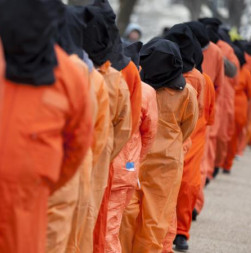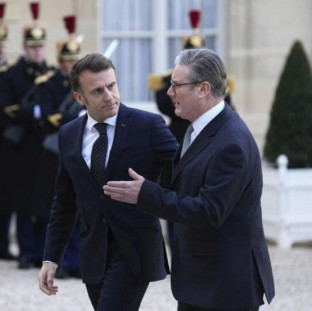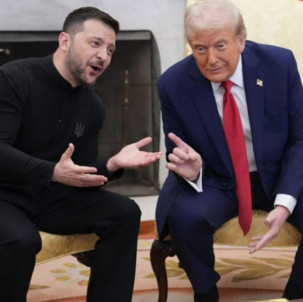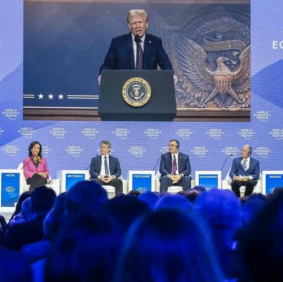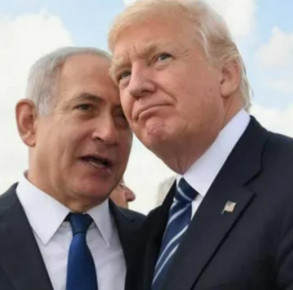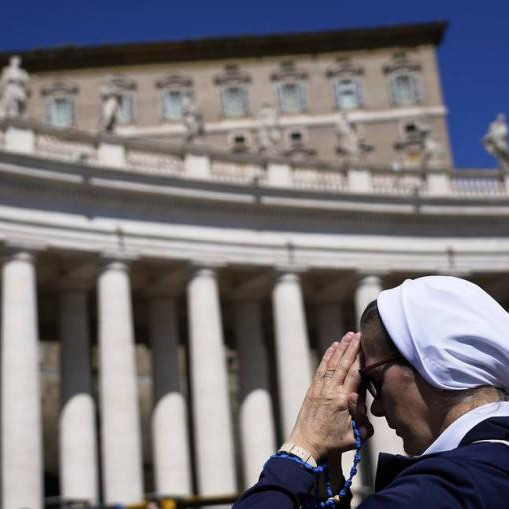
On April 30, it will be one hundred days since Donald Trump officially assumed office as US President, and the time has come to make some preliminary assessments of his reign. However, even between his election and inauguration, Mr. Trump was more active than most of his predecessors (including himself during his first term), so the results could be evaluated not just for the first three but the first five months. That said, adjusting the timeline doesn’t significantly alter the outcome.
To begin with, let’s note the complex dynamics within the presidential team, exemplified by the figure of Elon Musk, whose media presence recently rivaled — and at times surpassed — that of his omnipresent boss. Small wonder, given Musk’s ambitions — were it not for the rule barring non-native-born individuals from presidential races, the South African-born billionaire might have set his sights on the White House himself.
A clear sign of clashing ambitions, interests, and personalities within Team Trump was Musk’s announcement that, starting May, he would drastically reduce his involvement in the Department of Government Efficiency (DOGE), which he oversees. Musk cited declining profits at Tesla as the reason and pledged to keep contributing to managerial tasks though dedicating only one or two days a week to them. Seemingly valid a reason, it comes across more as an excuse.
Further evidence of friction between Musk and his colleagues emerged with reports of a loud, public argument between him and Treasury Secretary Scott Bessent. The dispute stemmed from both professional and lobbying issues: Musk had wanted his protégé Howard Lutnick appointed to Bessent’s current post, but Lutnick ended up as Commerce Secretary instead. Bessent, in turn, accused Musk of pushing his candidate to lead the Internal Revenue Service (IRS). “Bessent criticized Musk for overpromising and underdelivering budget cuts with DOGE. Musk clapped back by calling Bessent a ‘Soros agent’ [Bessent had indeed worked for Soros and supported the Democratic Party] and accusing him of having run a ‘failed hedge fund’ (Trump has praised Bessent's financial acumen),” Axios reported. According to the outlet’s sources, the argument was overheard not only by Trump but also by visiting Italian Prime Minister Giorgia Meloni.
Team disagreements extend to foreign policy, particularly regarding the Russia-Ukraine issue. Trump, with his trademark transactional approach, seeks to “turn the problem into an advantage” by assigning the roles of “good and bad cops” between his allies — though it’s unclear whether their own stances do shape their roles or vice versa. So far, this tactic hasn’t yielded results. The fact that Witkoff has been more favorable towards Russia and Kellogg harsher, while Rubio and Vance have taken a balanced approach, has done little to advance peace. Trump’s recent emotional social media post vividly illustrates the deadlock in his peacemaking efforts: “I am not happy with the Russian strikes on KYIV. Not necessary, and very bad timing. Vladimir, STOP! 5000 soldiers a week are dying. Let’s get the Peace Deal DONE!”. Having begun his peace settlement activities with proclamations of the kind, he has now circled back to them.
For now, Trump’s bold claims about annexing Panama, Canada, and Greenland — with a particular focus on the latter — have just remained empty talk. First floated during his initial term as an eccentric joke, the idea of acquiring or seizing the Danish-owned Island has now become a fixation. In March, he declared that Greenland “will be ours one way or another,” promising US support for its population’s right to self-determination and eventual statehood, should Greenlanders want it. Days later, he added: “We need Greenland for national and even international security.” Yet, there has been no movement beyond words. While geopolitical shifts of this scale rarely happen overnight, there’s no hint of progress or even clarity on the intended scenario.
Another potential target of Trump’s aggressive policies is Mexico, where the military scenario has been discussed right up front. The primary goal of a possible operation would be to curb drug trafficking, with an unstated but implied secondary objective of stemming the flow of illegal migrants. Trump stated: “The territory to the immediate south of our border is now dominated entirely by criminal cartels that murder, rape, torture, and exercise total control — they have total control over a whole nation — posing a grave threat to our national security. The cartels are waging war in America, and it’s time for America to wage war on the cartels, which we are doing.” Defense Secretary Pete Hegseth echoed him: “We’re taking nothing off the table. Nothing. We will do whatever it takes to secure the homeland, to maintain our sovereignty, and protect the American people.” Yet, apart from the tough rhetoric, is there going to be any action? With each unfulfilled threat, the likelihood will diminish.
A similar pattern unfolds with tariffs, which Trump has at varying levels imposed on half the world, from China to European “frenemies.” Criticism has united both the affected nations and feuding members of Team Trump. Musk called for lower tariffs and labeled Peter Navarro, the president’s trade advisor, “a moron” “dumber than a sack of bricks.” Scott Bessent dismissed relevant measures as “unworkable.” After China retaliated with 125% tariffs against America’s 146%, Trump was forced to announce that they would “come down substantially.” Chinese netizens mocked his retreat with the “Trump chickened out” hashtag.
Finally, let us examine the president's socio-cultural policies. Undoubtedly, the dismantling of wokeness as state ideology, cessation of government-funded coercive "diversity" initiatives, ban on transgender athletes in competitive sports, gutting of USAID, and similar displays of sound conservatism serve as critical markers of a return to traditional values and decline of left-liberal agenda. Yet even here, Trump’s revolutionary zeal proves selective. As one astute observer noted: "Shuttering USAID and rattling Canadians is hardly groundbreaking. It’s an easy way to feign decisive action. But if Donald were to take on Big Pharma, the insurance industry, or the military-industrial complex (freeing up trillions in budget savings), claw back unpaid taxes from Soros, Bloomberg & Co. (bolstering federal revenue), or even implement paid parental leave (a concern for the self-proclaimed Mars conqueror, given declining birth rates) — then we could speak of real transformation." Trump has yet to make even modest yet symbolically potent gestures, such as pardoning Derek Chauvin — the police officer whose fatal encounter with George Floyd, a repeat offender with a drug abuse record, ignited nationwide racial unrest five years ago. In early March, the President went out of his way to emphasize that Chauvin’s pardon "is not under consideration."
Mocking or underestimating Trump remains unwise as he remains a formidable and skilled politician wielding resources of the world's foremost superpower. The true question is how freely he can deploy these resources at his discretion, or even shape that discretion independently — the one his first hundred days have left unanswered. "All sound and fury, signifying nothing" might well be the most fitting epitaph for this chapter of his presidency.
